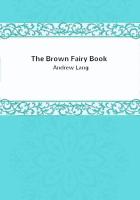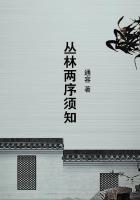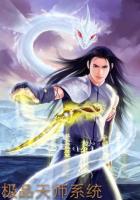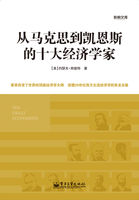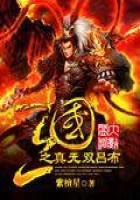It was now the close of the year 1476, near Christmas, and as it was customary for the duke to go upon St. Stephen's day, in great solemnity, to the church of that martyr, they considered this the most suitable opportunity for the execution of their design. Upon the morning of that day they ordered some of their most trusty friends and servants to arm, telling them they wished to go to the assistance of Giovanandrea, who, contrary to the wish of some of his neighbors, intended to turn a watercourse into his estate; but that before they went they wished to take leave of the prince. They also assembled, under various pretenses, other friends and relatives, trusting that when the deed was accomplished, everyone would join them in the completion of their enterprise. It was their intention, after the duke's death, to collect their followers together and proceed to those parts of the city where they imagined the plebeians would be most disposed to take arms against the duchess and the principal ministers of state, and they thought the people, on account of the famine which then prevailed, would easily be induced to follow them; for it was their design to give up the houses of Cecco Simonetta, Giovanni Botti, and Francesco Lucani, all leading men in the government, to be plundered, and by this means gain over the populace and restore liberty to the community. With these ideas, and with minds resolved upon their execution, Giovanandrea, together with the rest, were early at the church, and heard mass together; after which, Giovanandrea, turning to a statue of St. Ambrose, said, "O patron of our city! thou knowest our intention, and the end we would attain, by so many dangers; favor our enterprise, and prove, by protecting the oppressed, that tyranny is offensive to thee." To the duke, on the other hand, when intending to go to the church, many omens occurred of his approaching death; for in the morning, having put on a cuirass, as was his frequent custom, he immediately took it off again, either because it inconvenienced him, or that he did not like its appearance. He then wished to hear mass in the castle, and found that the priest who officiated in the chapel had gone to St. Stephen's, and had taken with him the sacred utensils. On this he desired the service to be performed by the bishop of Como, who acquainted him with preventing circumstances. Thus, almost compelled, he determined to go to the church; but before his departure, caused his sons, Giovan Galeazzo and Ermes, to be brought to him, whom he embraced and kissed several times, seeming reluctant to part with them. He then left the castle, and, with the ambassadors of Ferrara and Mantua on either hand, proceeded to St. Stephen's. The conspirators, to avoid exciting suspicion, and to escape the cold, which was very severe, had withdrawn to an apartment of the archpriest, who was a friend of theirs, but hearing the duke's approach, they came into the church, Giovanandrea and Girolamo placing themselves upon the right hand of the entrance, and Carlo on the left. Those who led the procession had already entered, and were followed by the duke, surrounded by such a multitude as is usual on similar occasions. The first attack was made by Lampognano and Girolamo, who, pretending to clear the way for the prince, came close to him, and grasping their daggers, which, being short and sharp, were concealed in the sleeves of their vests, struck at him. Lampognano gave him two wounds, one in the belly, the other in the throat. Girolamo struck him in the throat and breast. Carlo Visconti, being nearer the door, and the duke having passed, could not wound him in front: but with two strokes, transpierced his shoulder and spine. These six wounds were inflicted so instantaneously, that the duke had fallen before anyone was aware of what had happened, and he expired, having only once ejaculated the name of the Virgin, as if imploring her assistance. A great tumult immediately ensued, several swords were drawn, and as often happens in sudden emergencies, some fled from the church, and others ran toward the scene of tumult, both without any definite motive or knowledge of what had occurred. Those, however, who were nearest the duke and had seen him slain, recognizing the murderers, pursued them. Giovanandrea, endeavoring to make his way out of the church, proceeded among the women, who being numerous, and according to their custom, seated upon the ground, was prevented in his progress by their apparel, and being overtaken, he was killed by a Moor, one of the duke's footmen. Carlo was slain by those immediately around him. Girolamo Olgiato passed through the crowd, and got out of the church; but seeing his companions dead, and not knowing where else to go, he proceeded home, where his father and brothers refused to receive him; his mother only, having compassion on her son recommended him to a priest, an old friend of the family, who, disguising him in his own apparel, led him to his house. Here he remained two days, not without hope that some disturbance might arise in Milan which would contribute to his safety. This not occurring, and apprehensive that his hiding place would be discovered, he endeavored to escape in disguise, but being observed, he was given over to justice, and disclosed all the particulars of the conspiracy. Girolamo was twenty-three years of age, and exhibited no less composure at his death than resolution in his previous conduct, for being stripped of his apparel, and in the hands of the executioner, who stood by with the sword unsheathed, ready to deprive him of life, he repeated the following words, in the Latin tongue, in which he was well versed: "Mors acerba, fama perpetua, stabit vetus memoria facti."The enterprise of these unfortunate young men was conducted with secrecy and executed with resolution; and they failed for want of the support of those whom they expected would rise in their defense. Let princes therefore learn to live, so as to render themselves beloved and respected by their subjects, that none may have hope of safety after having destroyed them; and let others see how vain is the expectation which induces them to trust so much to the multitude, as to believe, that even when discontented, they will either embrace or ward off their dangers. This event spread consternation all over Italy; but those which shortly afterward occurred in Florence caused much more alarm, and terminated a peace of twelve years' continuance, as will be shown in the following book; which, having commenced with blood and horror, will have a melancholy and tearful conclusion.
同类推荐
热门推荐
从马克思到凯恩斯的十大经济学家
本书的内容是熊彼特在1910—1950年间为各个经济学杂志(除了关于马克思的那一篇外)写的十篇经典的评述性文章,对影响世界经济学的十大经济学派的代表人物,从马克思、瓦尔拉、门格尔,到马歇尔、帕累托、庞巴维克、陶西格,再到费雪、米切尔、凯恩斯,对他们的经济学说进行了详尽的阐述和评价。三国之真无双吕布
花开花落间,已是一个小小的轮回,当吕布舞戟于虎牢关前的时候,看到的只是有如蝼蚁般的废柴,战曹操、败刘备、得徐州,每一次的战争,都让世人惊叹他的勇武,但最后他失败了!被曹操缢死在白门楼前,撼世将星就此陨落,爱其者,皆叹之,怕其者,皆庆之。能力十足的吴振源,因失恋,酒后一不留神,出了点意外。论学习,他是K市的文科高考状元,轮竞技,自打出娘胎以后,就没挨过揍,论爱好,三国粉丝中的铁杆吕布迷,论人品,处男一枚。诸葛亮对刘备道:“主公,只要东吴肯与咱们联手抗吕,纵还荆州,也比亡国强啊”孙权皱眉道:“父亲倒是与吕布有些交情,可惜,英年早逝,孙仁,你怎么看?”郭嘉呕血道“告知..主公....先...伐..吕布”一代鬼才,气绝之时,仍双目圆睁!貂蝉依偎在吕布怀中嗔道“我们姐们两个陪你,你只是睡的还好吗?”先婚厚爱:总裁野蛮小娇妻
他很有力,床上功夫上乘,“沈希柔我不爱你,即使结婚了,你也没有权力干涉我。”他被捉奸在床,沈希柔屡屡撞到他和别的女人暧昧不清,而他一如既往平静温柔,“当做看不到,对你和我都好。”她是被他设计囚禁在家庭里的主妇,得不到任何真心,而他却不知道计中计。当沈希柔决定放弃,他却怒不可遏攥住她的手腕,“你以为善意的欺骗就没有罪?想离婚,我偏不许。”当她以为爱上了一条饿狼,却没想到他是那么的让人满意,沈希柔抱着他的背,指甲抓在他的皮肤上,在他耳边微喘,“承宪,再用力。”--情节虚构,请勿模仿


